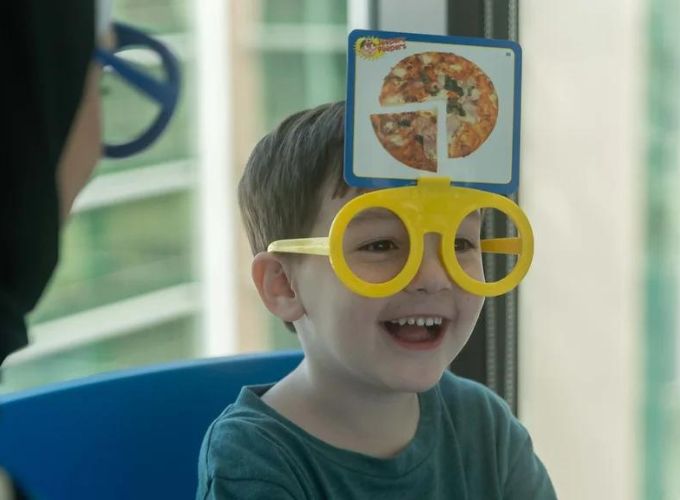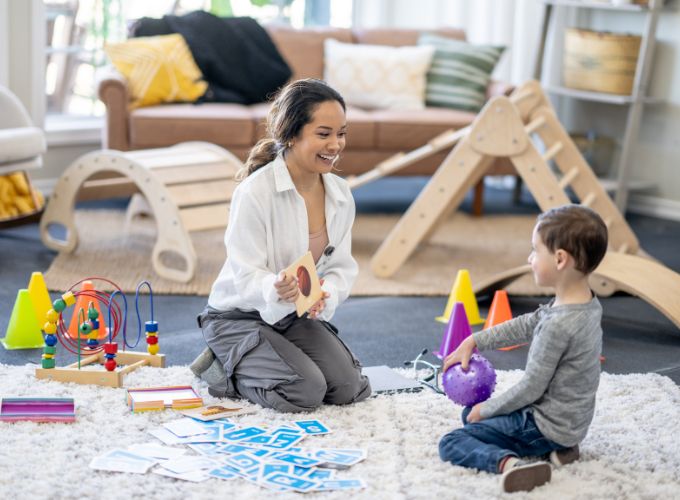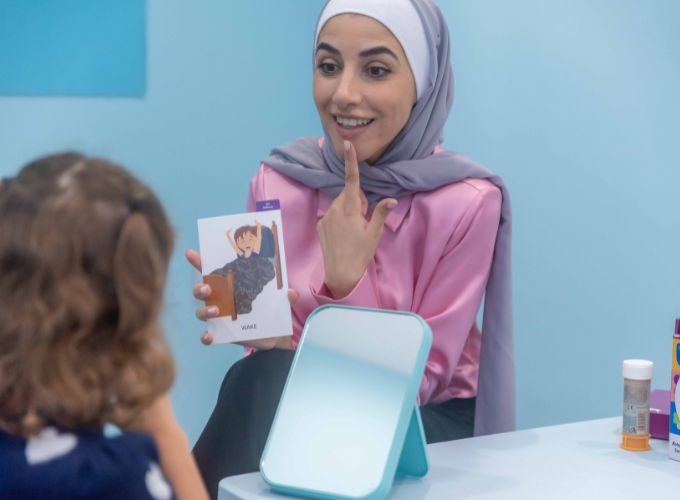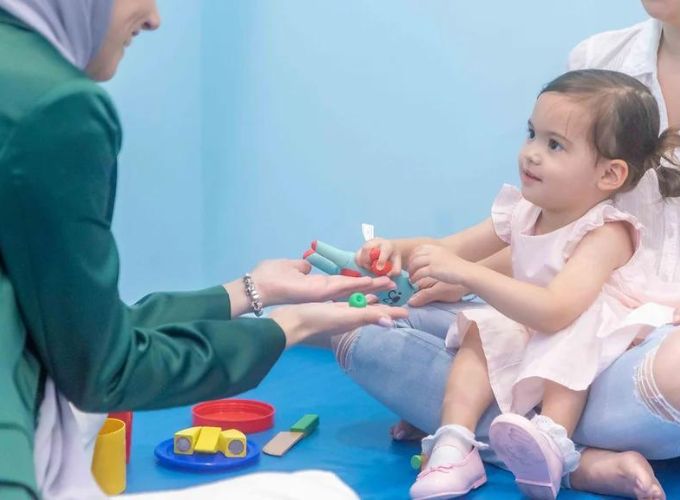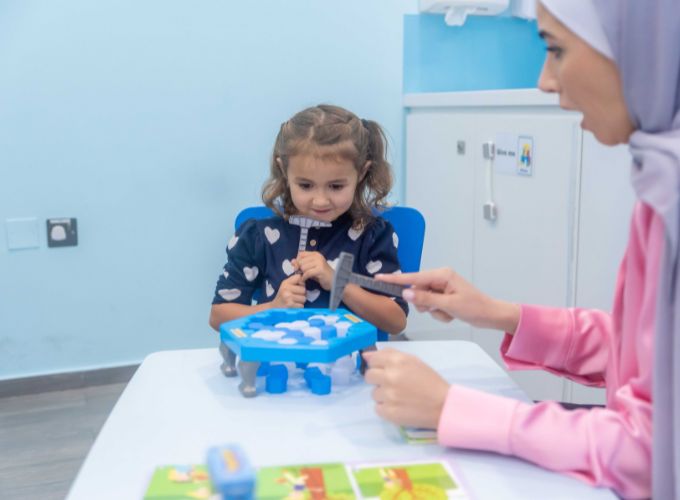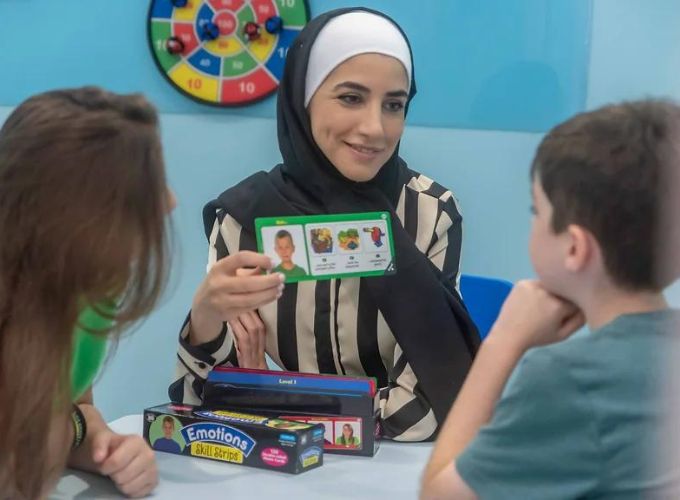Dysarthria
Dysarthria is a motor speech disorder that affects the muscles used for speaking, including those in the face, lips, tongue, throat, and even those involved in breathing. When these muscles don’t work properly due to brain or nerve damage, speaking becomes difficult. Dysarthria can range from mild to severe and can affect both children and adults.
Sometimes, dysarthria occurs alongside other speech or language difficulties, such as apraxia (difficulty coordinating muscle movements for speech) or aphasia (difficulty expressing thoughts or understanding others).
Signs of Dysarthria
Children with dysarthria might:
- Have speech that sounds different from before any brain or nerve damage.
- Speak in a way that is hard for others to understand.
- Have slurred or mumbled speech.
- Speak too slowly or too quickly.
- Talk too softly or too loudly.
- Have difficulty moving their tongue, lips, or jaw.
- Sound robotic or choppy.
- Have a hoarse or breathy voice.
- Sound nasal, as if congested or talking through the nose.
Causes of Dysarthria
Dysarthria is caused by changes in the brain or nerves, which can happen at birth or after an illness or injury.
Conditions that can lead to dysarthria include:
- Amyotrophic lateral sclerosis (ALS)
- Brain injury
- Cerebral palsy
- Huntington’s disease
- Multiple sclerosis
- Muscular dystrophy
- Parkinson’s disease
- Spinal cord injury
- Stroke
- Tumors
Schedule an appointment with one of our Speech Language Therapists today to discover how we can help you.
Testing for Dysarthria
If your child has new difficulties with speech, it’s important to see a doctor to find out why. Sudden changes in speech need immediate attention. A speech-language therapist (SLT) can evaluate your child’s speech and language skills to diagnose dysarthria or other communication disorders. The SLT will check how well your child moves their lips, tongue, and mouth, and how they breathe. They will also listen to your child’s speech and voice and see how well they communicate in different situations.
Treatment for Dysarthria
The treatment plan for dysarthria depends on its type and severity. An SLT may help your child by:
- Slowing down their speech.
- Speaking louder.
- Improving lip and tongue movements.
- Enunciating sounds more clearly.
- Modifying their voice to express emotions.
- Enhancing breath control for clearer, louder speech.
- Using gestures, writing, or communication devices to assist with communication.
The SLT can also teach family and friends strategies to improve communication with your child.
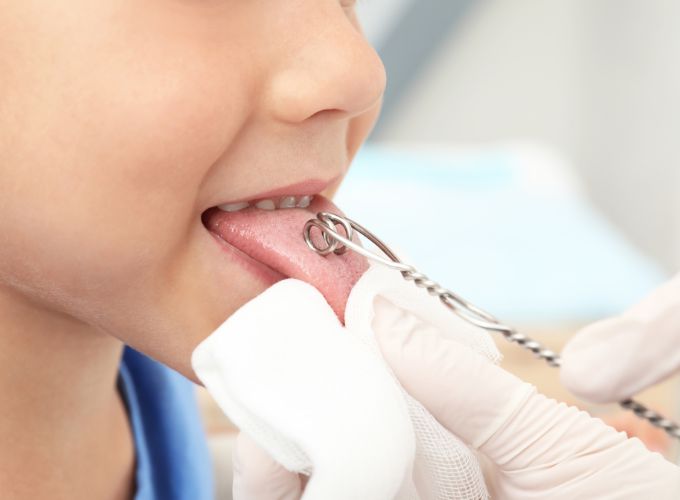
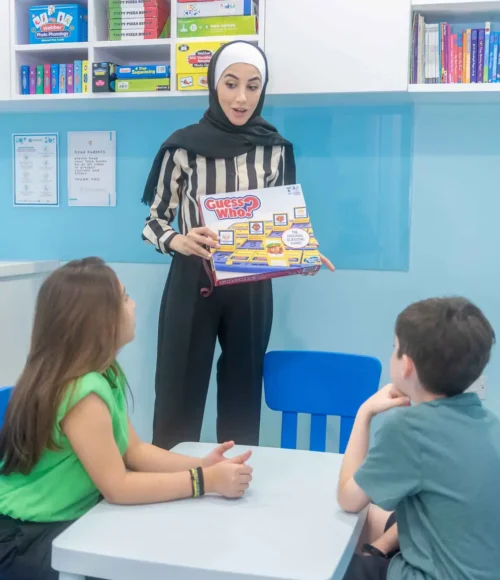
Tips for Communicating with Dysarthria
Effective communication involves effort from both the speaker and the listener. Here are some tips:
For Speakers with Dysarthria:
- Inform new listeners about your speech difficulties before starting a conversation.
- Begin with a keyword or phrase to signal the topic.
- Ensure your listener is paying attention by facing them.
- Focus on improving one speech aspect at a time.
- Pause to give listeners time to process what you’ve said.
- Rest before and after lengthy conversations.
- Use visuals, such as pointing, gesturing, or writing down key words.
For Listeners:
- Speak with the person in a quiet, well-lit area.
- Pay full attention to them when they speak.
- Watch their facial expressions and mouth movements.
- If you don’t understand, let them know. Don’t pretend to understand.
- Repeat back parts of their message that you did understand.
- If understanding is still difficult, ask yes/no questions or request gestures or written cues.
Understanding and addressing dysarthria early can make a big difference in your child’s communication skills. If you are concerned or have questions, feel free to reach out to one of our SLTs at Perfect Balance. Early intervention and support can help your child develop clearer and more effective communication.
Request an appointment to improve speech and communication skills.
Our Speech Therapy center in Abu Dhabi can help enhance language abilities, articulation,
and social communication, empowering you to communicate confidently and effectively!
Schedule a consultation with Perfect Balance Speech & Language Therapy today, and
take the first step on your child’s journey to better communication!
